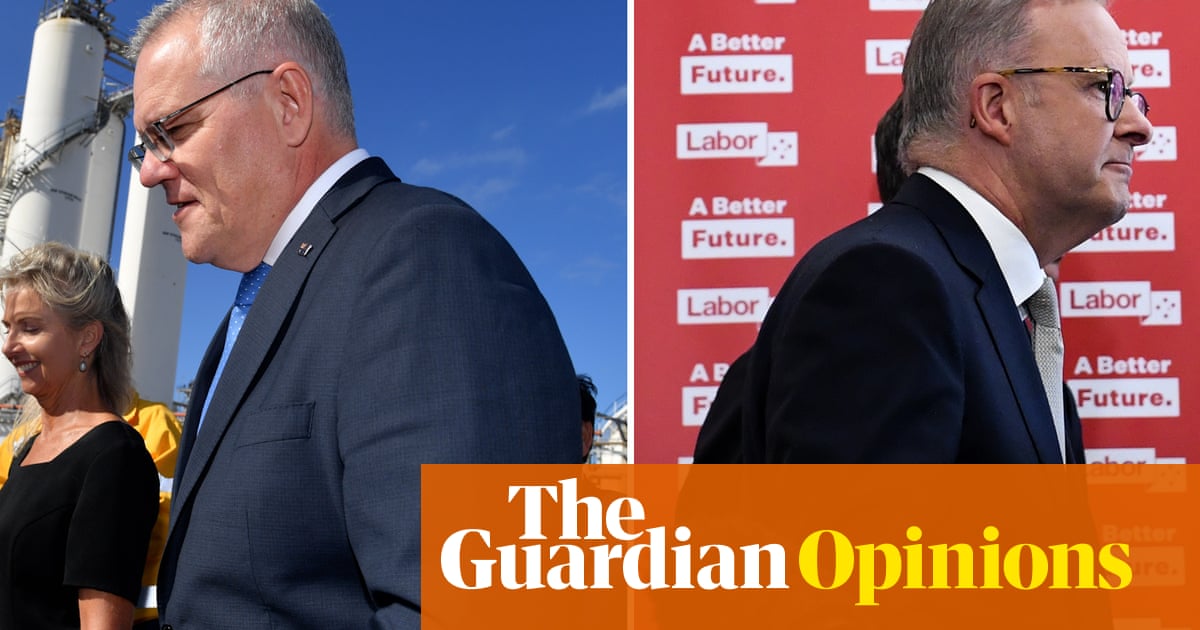When the Australian election was finally called, I was not in Perth, where I live.
Instead, I was sitting in a cafe with a friend in Johannesburg, talking about politics. I was finally home after a hard border closure that saw Western Australia shut itself off from the world for 697 days.
I was disappointed not to be there, because during election season Australians throw off their normal aversion to talking about politics. It was one of the first things I noticed about Australia when I moved here. There is a profound reticence on the part of many people to sharing political opinions.
In conversation after conversation, Australians are happy to talk about their disdain for politicians, but few are prepared to say what they think about matters they deem to be political – and certainly many people shrink from talking about party political views.
Indeed, whether you like him or not, it is this reticence Scott Morrison is speaking to when he references “quiet Australians”. He is alluding to that part of the Australian political identity that values keeping your head down and your politics close to your chest. Those who talk openly about their political views are not “true blue Aussies”. The outspoken are “woke” outsiders, people who go against the grain of the silent majority. In this view of the world, keeping your politics to yourself is a bonus; a sign of authentic Australian-ness.
In South Africa of course, the opposite is true. Here, politics is discussed at the drop of a hat. And yes, South Africa’s politicians are among the most corrupt and broken people in the world, but ordinary citizens continue to be deeply engaged in political debate.
Politics is stitched into the fabric of everyday life. Every day I have been back in Johannesburg, I have driven past a young man, who begs on a particular corner. Most days, he holds a cup for coins and a sign that reads: “PUTIN MONEY, I PROMISE TO SHARE WITH UKRAINE”.
The pun is both hilarious and sad. Thirty years after the end of apartheid, it is a testament to a politically audacious strain in the South African personality; an insistence that everyone has a right to voice their opinion. It speaks also, to South African’s willingness to discuss hard topics without flinching.
I had forgotten how much I admire this about the country, and how absent this trait is in quotidian Australian life.
It may seem counterintuitive – after all rich countries are supposed to teach poor countries how to behave – but as Australia races towards a generation-defining election, the continent at the edge of the world would do well to consider a few lessons from one of the most vibrant democracies on the planet.
South Africans are outspoken about their views, and are committed to robust and often deeply uncomfortable conversations. The result is that people are often far more capable of expressing themselves in political terms than they are in Australia. There is a fearlessness about daily conversations in South Africa that has helped me to think more deeply – and with greater urgency – about politics.
For example, a week after arriving, I found myself deep in conversation with a friend who was criticising the leadership of the country’s president, Cyril Ramaphosa. He argued that Ramaphosa is timid and suggested that he has failed to “grasp his historical mandate”.
The notion of a “historical mandate” was both delightful and intriguing; precisely the kind of grandiose phrase South Africans bandy about in daily life. I pushed him to explain further and he did. He contended that after a disastrous decade of corruption and mismanagement under Jacob Zuma, Ramaphosa had won the election by carrying the expectations of a weary nation on his shoulders. His task was to rebuild the ANC after nine years of neglect and malfeasance.
Instead, my friend argued, the president had squandered the opportunity, in large part because he didn’t understand that he had a mission that was about the times in which he was living, rather than being about any particular ambitions he may have had for himself.
It’s an argument that has a lot of merit. Mandela had a historical mission, which was to unite a divided nation. There is now widespread recognition in the country that while Mandela was a special man, he also managed the transition to democracy by navigating the political externalities of the times – the end of communism, the effectiveness of sanctions and the success of domestic pressure on the apartheid regime – and rising to the occasion.
The Australian context may be different, but the country faces a similarly significant leadership crisis. The country’s leaders must also rise to the occasion after a wasted decade.
Sign up for the Guardian Australia Weekend appUnder the Coalition, Australia has been left behind on every defining issue of the millennium – from climate change to race relations to refugee rights and workers’ rights. The increasingly rightwing policies of the Liberal Party have facilitated a politics that is both small-minded and mean-spirited.
As a result, Australia finds itself in the unenviable position of having plenty of wealth and no vision. In the coming years, the country faces more bushfires and floods, more drought and extreme weather events, and yet in playgrounds and sports fields around the country, in the next few weeks, people will nod and smile at one another and avoid the kinds of robust conversations that are necessary in momentous times.
This will not do: if everyday Aussies can learn anything from South Africa it is that they dare not be silent. They must care more about their futures than they do about maintaining an appearance of political propriety.
Scott Morrison is no Mandela, nor is Anthony Albanese, but the stakes of this election are incredibly high. Whoever wins at the polls be entrusted with a historical mandate they dare not betray.

